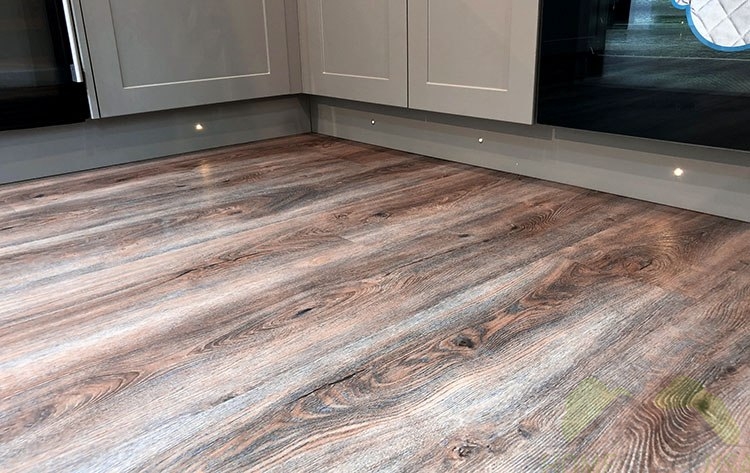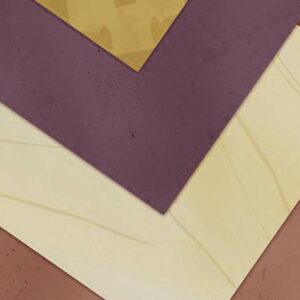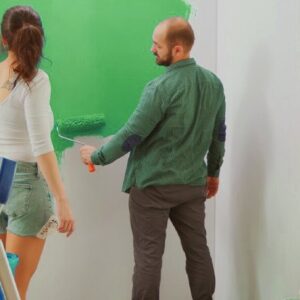Over the last few years, vinyl flooring has become a popular and affordable flooring option for many homeowners in the entire United States, Canada and the United Kingdom.
While there are many advantages to using vinyl flooring, there are also some disadvantages that should be considered before making the decision to install this type of flooring in your home.
10 Main Disadvantages of Vinyl Flooring
While many people find vinyl flooring affordable and visually appealing, it is an option that has some very critical downsides as well. If you are searching for a cheap and affordable flooring with the idea to install something else in a few years, it could be a good choice.
If you are looking for a long-term solution, however, you have to read this article to the end.
Here are 10 main disadvantages of vinyl flooring.
1st: Vinyl Flooring is Susceptible to Scratches
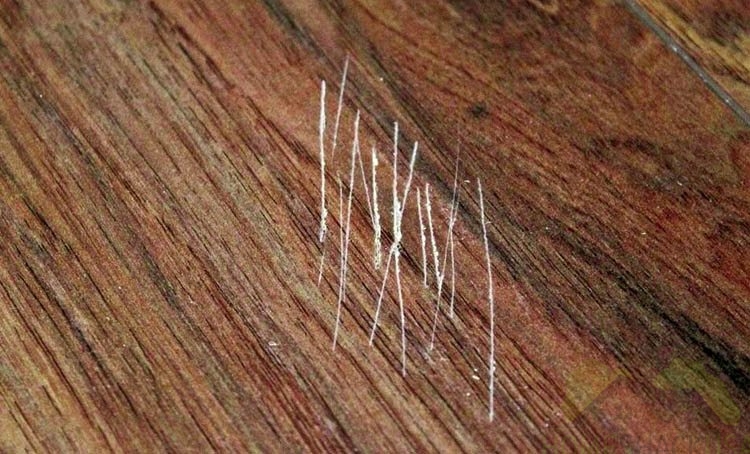
Vinyl flooring has the reputation of being quite susceptible to scratches. In fact, it can be easily scratched by sharp objects like furniture legs, pet claws, and even high heels.
This can cause unsightly damage to the surface of the floor, making it look worn and damaged over time.
2nd: Vinyl Flooring isn’t Considered Environmentally Friendly
As you know, vinyl flooring is made from synthetic materials and is not biodegradable.
The production process of vinyl flooring also uses a lot of energy and emits greenhouse gases, which can harm the environment.
3rd: Vinyl Flooring is not as Durable as Other Flooring Options
While vinyl flooring is generally durable, it is not as long-lasting as other types of flooring like hardwood or ceramic tiles.
Over time, vinyl flooring can become discolored, crack, or fade, especially in high-traffic areas.
4th: Vinyl Flooring is Prone to Dents and Indentations
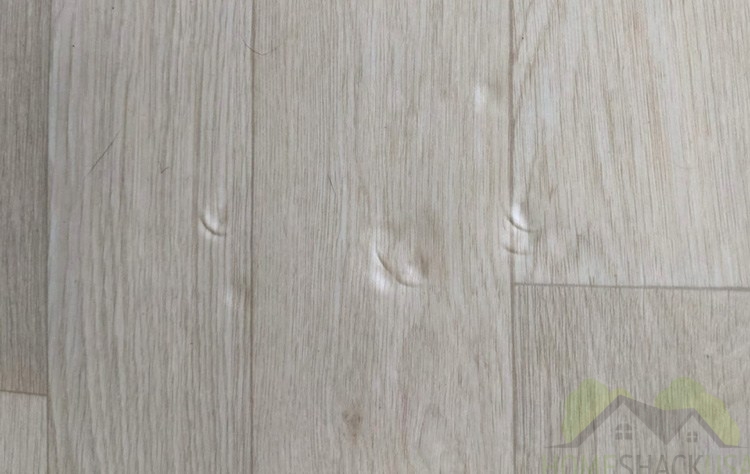
Vinyl flooring is susceptible to dents and indentations from heavy furniture, appliances, and dropped objects.
These dents and indentations can be difficult and even impossible to repair and may require replacement of the affected flooring area.
5th: Vinyl Flooring is not Waterproof
While vinyl flooring is water-resistant, it is not completely waterproof.
Water can seep between the seams and get underneath the flooring, causing damage to the subfloor or creating mold and mildew, which can lead to allergies and bad smells at home.
6th: Chemical Emissions
It is considered that some types of vinyl flooring may contain harmful chemicals like volatile organic compounds (VOCs).
These chemicals can be released into the air and can cause health problems for those who are sensitive to them.
7th: Vinyl Flooring is Difficult to Repair
If vinyl flooring is damaged, it can be very difficult and even impossible to repair.
Replacing damaged planks or tiles can be challenging, especially if the flooring has been discontinued or is no longer available in the store.
8th: Vinyl Flooring is not Heat Resistant
Vinyl flooring is not heat-resistant and can be easily damaged by hot objects like pots and pans or by the heat from direct sunlight.
This can cause the vinyl to warp, buckle, or fade over time.
9th: Vinyl Flooring Offers Limited Design Options
While there are many design options available for vinyl flooring, the range of colors and patterns is limited compared to other flooring types like hardwood or ceramic tile.
This can make it difficult to find a vinyl flooring option that matches your specific design preferences.
10th: Vinyl Flooring is not as Valuable as Other Flooring Types
Vinyl flooring is generally less expensive than other flooring types like hardwood or ceramic tile, but it is also less valuable.
This means that it may not add as much resale value to your home as other flooring types would. As it easily shows traces of ageing, it could make your home look cheap, which is very bad if you are planning to sell your property in future.
Consider All Pros and Cons Before Making a Decision
At the end of the day, vinyl flooring is very popular and is one of the most affordable flooring options. And while it has many advantages, it is important to consider the disadvantages as well before making a decision.
As we already mentioned, vinyl flooring is susceptible to scratches, dents, and indentations, and is not as durable as most of the other flooring types. It is also not completely waterproof and can emit harmful chemicals.
Repairing vinyl flooring can be difficult, and it is not heat-resistant. Additionally, the design options are limited, and vinyl flooring may not add as much resale value to your home as other flooring types.
In the end, it is up to each individual homeowner to weigh all the pros and cons and determine if vinyl flooring is the right choice for their specific needs and preferences or have to consider installing another type of flooring.

